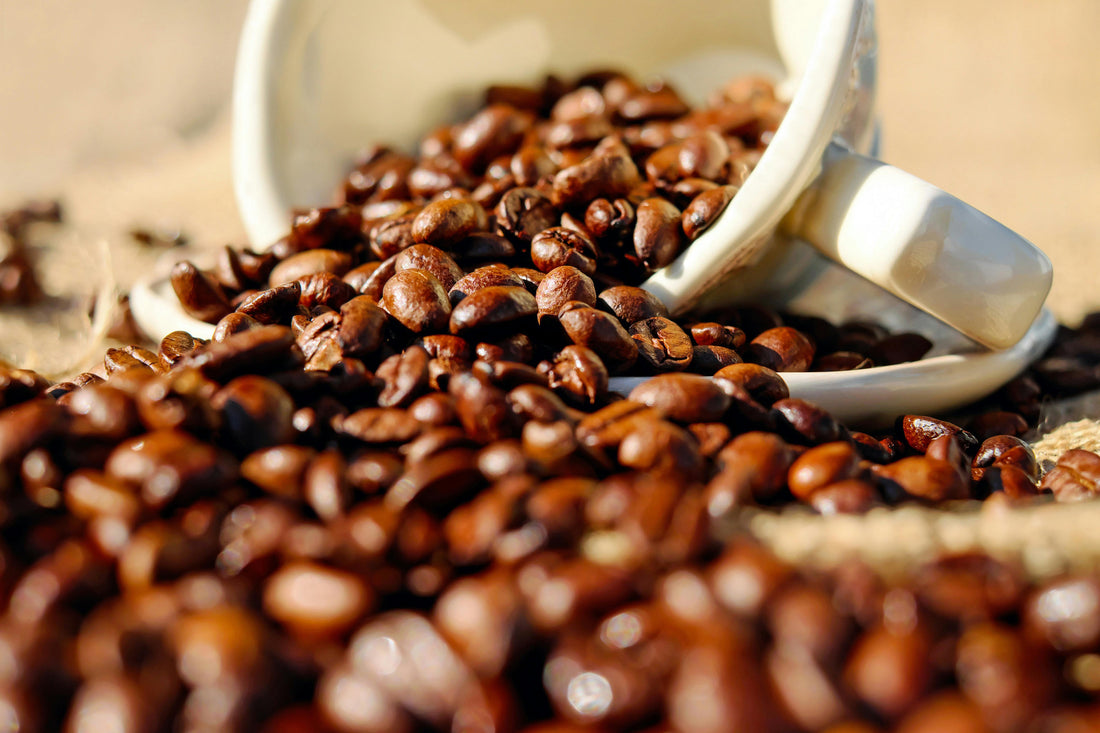
The Brew-tiful Connection: Coffee in the Age of Social Media and Influencer Marketing
Once upon a time, coffee was simply a morning ritual, a dark, invigorating liquid to kickstart the day. Then came the coffeehouse, transforming it into a social hub, a "school of the wise" where ideas brewed as fast as the espresso. Fast forward to 2025, and coffee has truly ascended to a new realm: that of digital social currency, meticulously crafted for the 'gram, and a powerful tool in the arsenal of influencer marketing. It's no longer just about the taste; it's about the aesthetic, the experience, and the carefully curated narrative around every single cup.
Think about it: when was the last time you scrolled through your feed without encountering a perfectly frothed latte, a minimalist flat lay featuring an artisan pour-over, or a TikTok of someone whipping up an elaborate, multi-colored coffee concoction? Coffee, in its myriad forms, has become intrinsically linked with our online identities. For Gen Z, especially, coffee is a "little treat" culture phenomenon, where personalized drinks with vibrant colours and elaborate cold foams are not just beverages, but statements. They're a badge of "I'm creative, I'm in the know, I'm trendy," amplified by every digital snap and share.
This isn't accidental. The coffee industry, keenly aware of shifting consumer behaviour, has embraced social media with open arms. Instagram, with its visual dominance, became an immediate playground for latte art masterpieces and aesthetically pleasing cafe vibes. Hashtags like #CoffeeGoals, #MorningCoffee, and #CafeVibes are not just trending, they're virtual communities where coffee lovers share their daily dose of liquid inspiration.
But the game has evolved beyond pretty pictures. Enter the influencer. These digital tastemakers, with their authentic voices and dedicated followings, have become the new evangelists of the brew. Why? Because in a world saturated with traditional advertising, influencers offer a level of trust and relatability that feels genuine. When a favorite lifestyle blogger raves about a new artisanal blend, or a TikTok barista demonstrates a revolutionary brewing technique, it resonates far more deeply than a polished corporate ad. In fact, a National Coffee Association survey found that a whopping 63% of people use social media to learn about new coffee brands (Source: Intelligence.Coffee).
The examples are abundant and often ingenious. Dunkin' famously collaborated with TikTok sensation Charli D'Amelio to launch "The Charli" drink, directly tapping into her massive Gen Z audience and sending sales soaring. Starbucks, ever the pioneer, actively identifies and engages online influencers to create content that speaks directly to their target consumers. And then there's Emma Chamberlain, who not only showcases coffee in her content but has successfully launched her own eponymous coffee brand, leveraging her authenticity and community to build a tangible product empire (Source: Coffee Intelligence).
The psychology behind this phenomenon is fascinating. Coffee has always been a social catalyst, a reason to gather, converse, and connect. From the bustling coffeehouses of Constantinople, which served as "schools of the wise" for intellectuals and artists, to the modern-day cafe meet-ups, coffee fosters social interaction (Source: Rock Creek Coffee). Social media merely extends this inherent social nature into the digital sphere. When you share your #CoffeeMoment, you're not just showcasing a drink; you're inviting connection, sharing an experience, and participating in a global conversation. The caffeine itself plays a role, making us "hyperverbal" and chatty, further fueling social engagement, both online and off (Source: University of Utah Health).
For coffee brands, this means shifting from merely selling a product to curating an experience, a lifestyle. Successful strategies involve creating visually appealing content, engaging with online communities, running contests that encourage user-generated content, and, crucially, partnering with influencers whose aesthetics and values align with their brand. Whether it's behind-the-scenes glimpses of the roasting process, tutorials on brewing the perfect cup, or just beautiful shots of people enjoying their coffee in picturesque settings, the content needs to be as rich and engaging as the coffee itself.
In essence, coffee in the age of social media and influencer marketing is more than just a beverage; it's a statement, a lifestyle, and a powerful tool for building community and brand loyalty. So, the next time you sip your beautifully crafted latte, remember: you're not just enjoying a drink, you're participating in a global, visually-driven phenomenon, one perfectly brewed sip at a time. And perhaps, just perhaps, you'll be inspired to snap a pic and share your own #CoffeeGoals with the world. After all, isn't that what it's all about?